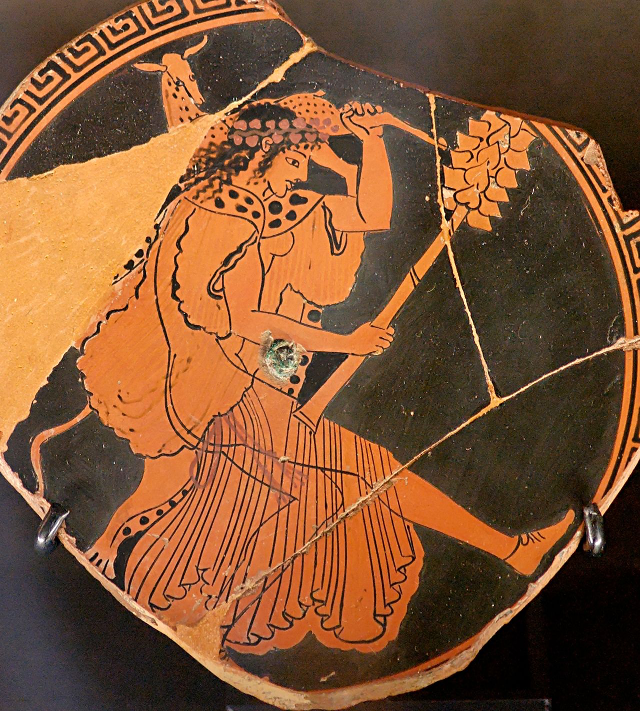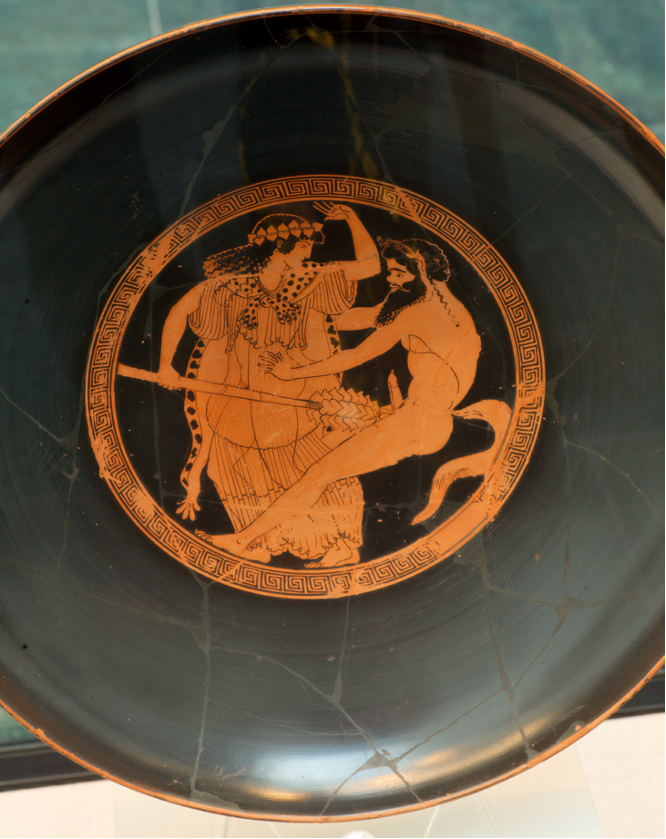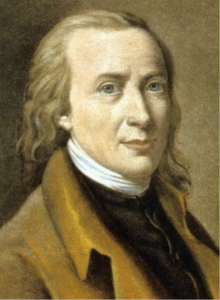On the first morning of May
(Poet's title: Der Frühling. Am ersten Maimorgen)
Set by Schubert:
D 344
[November 1816]
Part of The Theresa Grob Album
Heute will ich fröhlich, fröhlich sein,
Keine Weis’ und keine Sitte hören,
Will mich wälzen und für Freude schrein,
Und der König soll mir das nicht wehren.
Denn er kommt mit seiner Freuden Schar
Heute aus der Morgenröte Hallen,
Einen Blumenkranz um Brust und Haar,
Und auf seiner Schulter Nachtigallen.
Und sein Antlitz ist ihm rot und weiß,
Und er träuft von Tau und Duft und Segen –
Ha! mein Thyrsus sei ein Knospenreis,
Und so tauml’ ich meinen Freund entgegen.
Today I am going to be really, really cheerful,
I am not going to listen to any preaching or moralizing,
I want to throw myself around and cry for joy,
And not even the King will be able to stop me;
For HE is arriving with his band of joys,
Today, out of the Halls of Dawn,
With a garland of flowers around his chest and hair,
And on his shoulder there are nightingales;
And his visage appears to be both red and white,
And trickling from him there is dew and scent and blessings –
Ha! may my thyrsus be a budding sprig,
So that I can stagger towards my friend.
All translations into English that appear on this website, unless otherwise stated, are by Malcolm Wren. You are free to use them on condition that you acknowledge Malcolm Wren as the translator and schubertsong.uk as the source. Unless otherwise stated, the comments and essays that appear after the texts and translations are by Malcolm Wren and are © Copyright.
☙
Themes and images in this text:
Bacchus Buds Chest / breast Dancing Dew Flowers Friends Hair Joy May Morning and morning songs Nightingales, Philomel Red and purple Shoulders Smells Spring (season) White Wreaths and garlands
So who is the ‘he’ that is arriving? Some previous commentaries have claimed that it must be ‘Spring’ (der Frühling is a masculine noun in German), perhaps under the influence of Mörike’s famous lyric ‘Er ist’s’ (It is him!), memorably set to music by Wolf. However, it is simpler to assume that he is just the month of May (der Mai is similarly masculine). The speaker is preparing to ‘dance in the May’, and the determination to swing about (wälzen) and to stagger up towards a friend (so tauml’ ich meinen Freund’ entgegen) recalls the Bacchic rites of the Maenads. In The Bacchae by Euripides (first performed in 405 BCE) these followers of Dionysus drive themselves into a frenzy, and they all carry a thyrsus (‘the weapon wreathed with ivy-shoots’ The Bacchae 25). Maenads are often shown carrying a thyrsus in Greek vase paintings. The association with later European maypole dancing is hardly surprising.

Louvre Museum, Paris

Staatliche Antikensammlungen, München
☙
Original Spelling Am ersten Maimorgen Heute will ich fröhlich, fröhlich seyn, Keine Weis' und keine Sitte hören; Will mich wälzen, und für Freude schrein, Und der König soll mir das nicht wehren; Denn er kommt mit seiner Freuden Schaar Heute aus der Morgenröthe Hallen, Einen Blumenkranz um Brust und Haar Und auf seiner Schulter Nachtigallen; Und sein Antlitz ist ihm roth und weis, Und er träuft von Thau und Duft und Seegen - Ha! mein Thyrsus sei ein Knoßpenreis, Und so tauml' ich meinen Freund' entgegen.
Confirmed by Peter Rastl with Schubert’s probable source, ASMUS omnia sua SECUM portans, oder Sämmtliche Werke des Wandsbecker Bothen, I. und II. Theil. Beym Verfasser, und in Commißion bey Fr. Perthes in Hamburg. [1774], page 194; and with Poetische Blumenlese Auf das Jahr 1775. Göttingen und Gotha bey Johann Christian Dieterich, page 97.
First published in Der Deutsche, sonst Wandsbecker Bothe. Ao. 1774. No. 84. Freytags, den 27ten May.
To see an early edition of the text, go to page 194 here: https://resolver.sub.uni-hamburg.de/kitodo/PPN840695020


